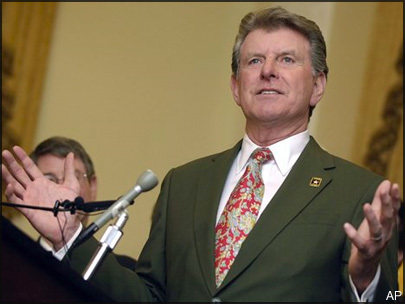Idaho Gov. “Butch” Otter—one of the most prominent opponents of Obamacare—announced his state would implement its own health insurance exchange under the law.
Idaho Freedom Foundation executive director Wayne Hoffman, who was a member of the governor’s task force studying implementation, had recommended the alternate path of allowing the federal government to set up an exchange. Instead, the state legislature passed legislation to follow Otter’s path.
“There is intent language in the insurance exchange bill,” said Hoffman. “The bill has these great passages about state sovereignty and self-determination and the 10th Amendment, but there’s nothing in the bill that really puts that into practice.”
Cites Cost Considerations
Bill Deal, director of the Idaho Department of Insurance, said he has supported state implementation all along.
“We know the federal government says they’re going to charge in the federally facilitated exchange a fee of 3.5 percent of the premium [for each exchange plan],” Deal said. “With the help we’ve had from some of the contractors that we’ve hired to look into these issues, it appears the cost of operating a state-based exchange in Idaho would be significantly less than that. So there’s one ongoing cost that can be reduced, and we have that flexibility if we frugally run the exchange.”
Deal also cited the ability to manage the Navigators—bureaucrats with the task of guiding people through the exchange—as a benefit.
“With a state-based exchange we have the authority to manage Navigators. We have authority to allow our current producers for health insurance to be [an] important part of the exchange from the standpoint of helping our citizens understand and move forward with the participation in the exchange,” Deal said.
“We call it a marketplace, now,” Deal added, citing the new branding from the Obama administration.
Future Costs and Repercussions
Hoffman, however, says the true costs for the state have yet to be acknowledged.
“The way the exchange law is worded,” Hoffman noted, “they are going to implement some kind of fee for using the exchange. We don’t know what those fees are. We don’t know how much those are going to be. We don’t know who is going to pay them. But the insurance exchange board has the ability to set those, and will soon be doing exactly that.”
Hoffman said Otter and other implementation supporters will regret their decision.
“What we see is the state bending over backwards to implement what the Obama administration was unable to implement on its own,” said Hoffman. “Every single time an exchange is unable to get off the ground, and some state is not having to experience the full force and repercussions of Obamacare, we’re going to remind you that could have been Idaho.”





